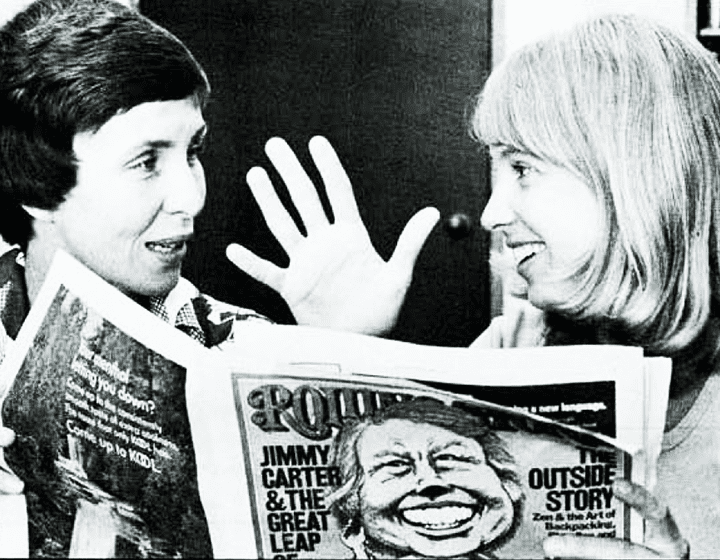
If it’s in print, on radio or TV, or up on the silver screen, it’s fair game for Marjorie Smelstor and Carol Weiher, who will review the varied elements of Popular Culture in America.
Culture Goes Pop
Two UTSA professors allow students to explore popular culture of the mid-1970s
[ This article was originally published in the UTSA newsletter The Discourse in October 1976 ]
Welcome to Popular Culture 1976. To test your basic knowledge of this “everyday” course, answer each of the following questions in 20 words or less. Do not turn on your television, open a newspaper, or run to the record cabinet. Good luck. You may begin.
- What is Elton John saying to us in “Goodbye, Yellow Brick Road”?
- What is director Robert Altman saying about America in his motion picture Nashville.
- What is Agatha Christie’s latest whodunit?
- Should a gentleman offer a Tiparillo to a lady?
The answers to these and thousands of other questions like them will not be found at the end of this article, nor will you necessarily find them by ransacking your home looking for the latest Time magazine. But if professors Marjorie Smelstor and Carol Weiher have their way, you will at least have the opportunity to explore Popular Culture in America, what it says to us and about us, in their three-part seminar.
Sponsored by UTSA’s Division of Continuing Education, the seminar—subtitled “Who Puts the Soap in Soap Operas?”—will be conducted at the university’s Lutcher Center. The seminar, say the instructors, who are both assistant professors of English at UTSA, will explore pop culture from two main viewpoints—how it affects people and how the needs of people determine the directions of popular culture.
“We feel the best way to define popular culture is to say that it is something that has sold in a big way to a very large segment of the American people,” says Weiher.
The seminar, they explain, will examine pop culture as marketed in various forms—on television, in movies and newspapers, on billboards and supermarket book shelves, and on radio. Suggested readings for the course include Marshall McLuhan’s The Mechanica! Bride, the Raymond Chandler mystery Farewell, My Lovely, the screenplay of Nashville and the detective journalism in Carl Bernstein and Bob Woodward’s All the President’s Men.
“There are no such things as experts in popular culture,” says Smelstor. “Or, perhaps, we’re all experts. We all have different insights.”


